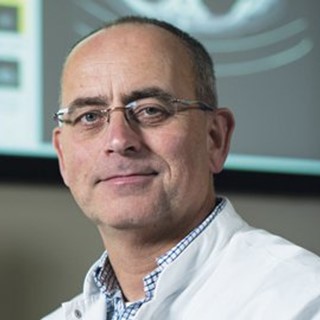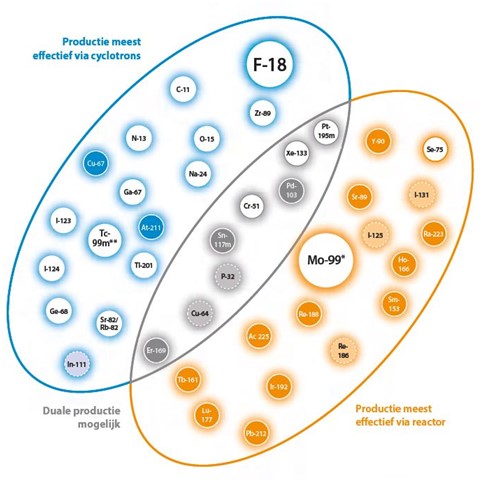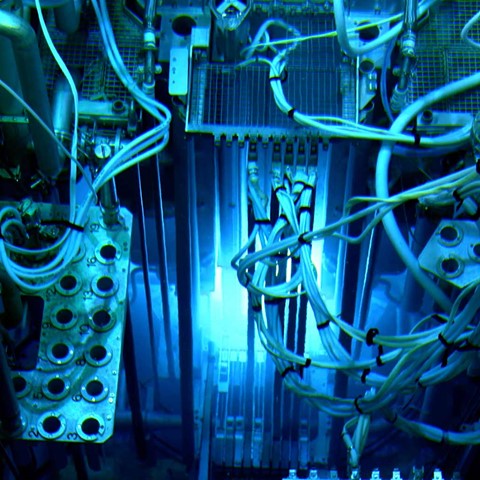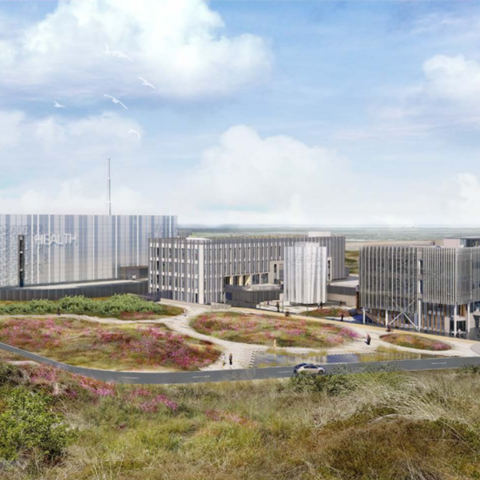Is a reactor necessary?
- Reactors and particle accelerators are both needed for isotope production
- Isotopes for therapy can only be produced in a reactor
Is a reactor necessary for the production of medical isotopes?
In prosperous countries, most people die of cardiovascular disease, cancer, diabetes, lung and respiratory tract conditions and dementia. In all these cases, apart from diabetes, the specialist will probably refer the patient to the nuclear medicine specialist.
This referral is usually to perform a scan (90% of cases), but increasingly it also involves (cancer) treatment or pain management.
Nuclear medicine and medical isotopes
The photo taken by the nuclear medicine specialist and the prescribed treatment both involve medical isotopes. And those medical isotopes? They come from a nuclear reactor.
In the nuclear reactor, uranium atoms are split under controlled conditions. This creates a cloud of neutrons. By firing these neutrons at a target, they become radioactive.
This produces isotopes: artificial substances with radioactive properties which we can use in medicine. We currently use 24 reactor isotopes for medical purposes. And this may increase in the future.
After the irradiation, a series of purification and processing steps takes place in various laboratories. The entire nuclear infrastructure consists of the reactor, laboratories and the parties which quickly prepare the irradiated materials.
Due to the short life span of the isotopes, having all the parties in one location and the availability of sophisticated logistics are vital to be able to rapidly transport the irradiated materials to the hospitals.
Read more
More information?
Download our comprehensive knowledge documents or contact our press officer.

Cora Blankendaal
Press Officer
Knowledge document
See documents on further deepening of medical isotope production and the infrastructure required for this.
Visie Nucleaire Kennisinfrastructuur
Dr. Marcel Stokkel
Head of Nuclear Medicine at the Antoni van Leeuwenhoek Hospital
Treatment of tumours?
That really requires a reactor.
- Without medical isotopes, we can't do anything. And our Nuclear Medicine department at the Antoni van Leeuwenhoek Hospital might as well just close.
- Obviously, there are alternative ways to make medical isotopes, using cyclotrons for example. But those isotopes are only suitable for diagnostics, not for treating tumours.
- There are only a few isotope reactors in the world, most of which are old and due for decommissioning soon.
- And there only needs to be one reactor with a malfunction and all the world's hospitals immediately have a problem.
Without medical isotopes, we can't do anything. And our Nuclear Medicine department at the Antoni van Leeuwenhoek Hospital might as well just close.
Can every medical isotope that is currently produced in a reactor also be produced in an accelerator?
The answer is: No. The reverse is also true: not every medical isotope that is produced in an accelerator can also be produced in a reactor. This is due to the properties of the raw materials in relation to the radiation generated by an accelerator or reactor. These are physical properties that determine how much radioactivity can be generated using a reactor or an accelerator.
It is also important to consider whether the medical isotope can be generated with the correct quality (purity, specific activity) and in the correct quantity (radioactivity).


Dr. Richard Henkelmann
Managing Director ITM Medical Isotopes GmbH. A company of the ITM Group.
ITM: Creating precision oncology treatments
Many patients whose cancer diseases were considered incurable just a few years ago can be shown new perspectives and given hope again thanks to advances in nuclear medicine.
- Development, production and global supply of next generation medical radioisotopes and radiopharmaceuticals
- Innovative precision oncology pipeline with radiodiagnostics and -therapeutics for difficult to treat cancers
- Over 360 established sites worldwide
- Collaboration with over 30 distribution partners in about 50 countries
- High-quality products & environmental sustainability
To produce radiopharmaceuticals for the treatment of cancer patients worldwide, the NRG reactor in Petten, as part of an international reactor network, is of great importance. - Dr. Richard Henkelmann
The Netherlands is the largest manufacturer
Since the closure of the Canadian NRU reactor, the Netherlands has become the world's largest manufacturer of medical isotopes.
Because Technetium-99m dominates in terms of market share, the expectations for this market are crucial. A slight growth is expected over the next 20 years. This growth can mainly be attributed to countries where nuclear medicine is currently still in its infancy.
In Western countries, there has been a particular rise in demand for therapeutic isotopes. For example, there are high expectations for lutetium-177 and holmium-166.
When the reactor is on, there is a characteristic blue glow. In the reactor core, small enough to fit under an office chair, isotopes for medical applications are produced.


The HFR, PALLAS and other reactors.
The HFR in Petten has been producing medical isotopes for over 60 years. However, the reactor in Petten AND other reactors worldwide are getting old. Within 15 years, three quarters of the reactors which are currently suitable for producing medical isotopes will be decommissioned.
If the HFR, which is responsible for 70% of the European production of medical isotopes, is not replaced by a new reactor, the availability of diagnostic isotopes will be at risk. For the (growing) market of therapeutic isotopes, that will create an impossible situation. Many patients could then no longer be treated with therapeutic isotopes.
We are therefore working on a new isotope reactor: PALLAS.
Lutetium-177, used for the treatment of prostate cancer, is one example of a promising therapeutic isotope which can only be made in a reactor.

Prof. Dr. Lioe-Fee de Geus-Oei
Nucleair geneeskundige Leidsch Universitair Medisch Centrum
Isotopes from the reactor are essential.
There is no other way to produce isotopes for treatment.
- The demand for isotopes will only increase. Because there are many new therapies in the pipeline.
- Alternative production methods for the reactor are not yet advanced enough. "An example: the isotope technetium-99m must be sufficiently pure to be injected in patients. That is not yet the case for technetium-99m from the cyclotron."
- If we move to alternative diagnostic methods, we will often need to make do with less.
- Less accurate, not cost effective, invasive, less patient-friendly, or not yet evidence based.
Without isotopes from the reactor, we cannot provide the best possible care. And there is no way to produce isotopes for treatment.
